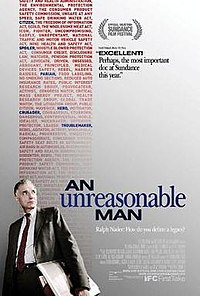Granted, John McCain's positions on the environment, immigration, and human rights are sensible. But as Johann Hari writes, "It is a sign of how far to the right the Republican Party has drifted that these are considered signs of liberalism, rather than basic humanity." Hari notes that John McCain's stance on foreign policy questions reeks of the foolhardy bravado of all US imperialists:
His most thorough biographer – and recent supporter – Matt Welch concludes: "McCain's programme for fighting foreign wars would be the most openly militaristic and interventionist platform in the White House since Teddy Roosevelt... [it] is considerably more hawkish than anything George Bush has ever practised." With him as president, we could expect much more aggressive destabilisation of Venezuela and Bolivia – and more.Johann Hari might have also noted McCain's propensity on the campaign trail to propagate untoward fear of radical Islam and the "Caliphate."
After seven years of the worst government in the history of the United States, modest degrees of reasonableness seem revolutionary and hopeful. When Americans look to the Republicans in 2008 -- even to John McCain -- they look at the world through a broken lens. Sadly, it seems to be the case that Democratic Party supporters who turn to Hillary Clinton are no different.
 Say what you will about Raph Nader*, he always exhibits independence in his outlook. So it's worth asking why this creative American thinker will not be supporting Hillary Clinton for president. Nader reminds us how little Clinton did to check the growth of corporate power, and how much he did to tilt the balance of power against institutions of civil society. In Nader's opinion, the Clinton Administration represented a vast, wasted opportunity. No less so, perhaps, than the squandering of global sympathy and domestic resolve by Bush post 9/11. Ralph Nader writes:
Say what you will about Raph Nader*, he always exhibits independence in his outlook. So it's worth asking why this creative American thinker will not be supporting Hillary Clinton for president. Nader reminds us how little Clinton did to check the growth of corporate power, and how much he did to tilt the balance of power against institutions of civil society. In Nader's opinion, the Clinton Administration represented a vast, wasted opportunity. No less so, perhaps, than the squandering of global sympathy and domestic resolve by Bush post 9/11. Ralph Nader writes: The 1990's were the first decade without the spectre of the Soviet Union. There was supposed to be a "peace dividend" that would reduce the vast, bloated military budget and redirect public funds to repair or expand our public works or infrastructure. . .Bush certainly pushed things to the lunatic extreme, but he wasn't starting from scratch. Now the US is not just faced with the perpetuation of a bankrupt ideology, but millions of actual bankrupt families.
There are changes both the Clinton Administration actively championed that further entrenched corporate power over our economy and government during the decade. He pushed through Congress the NAFTA and the World Trade Organization (WTO) agreements that represented the greatest surrender in our history of local, state and national sovereignty to an autocratic, secretive system of transnational governance. This system subordinated workers, consumers and the environment to the supremacy of globalized commerce.
That was just for starters. Between 1996 and 2000, he drove legislation through Congress that concentrated more power in the hands of giant agribusiness, large telecommunications companies and the biggest jackpot-opening the doors to gigantic mergers in the financial industry. The latter so-called "financial modernization law" sowed the permissive seeds for taking vast financial risks with other peoples' money (ie. pensioners and investors) that is now shaking the economy to recession.
And the best the country can do is turn to the Clintons? Ralph Nader has a point.
_____________
Photo: An advertisement for An Unreasonable Man, a 2007 documentary film that traces the life and career of the political activist Ralph Nader (Wikipedia). I thought the film was terrific and I urge all my readers to see it.
*The synopsis page for the documentary's website provides a concise biography of Ralph Nader: ". . . Nader built a legislative record that is the rival of any contemporary president. Many things we take for granted including seat belts, airbags, product labeling, no nukes, even the free ticket you get after being bumped from an overbooked flight are largely due to the efforts of Ralph Nader and his citizen groups." Today, Ralph Nader, progressive icon of the 1970s, is blamed by many democrats for having played the spoiler in 2000. They claim he took enough votes away from Al Gore in Florida for George Bush to win, but a political science researcher claims to have disproved this theory. Nader says that his decision to run in 2008 will be determined by whether the Democratic Party selects Hillary Clinton as its nominee.

No comments:
Post a Comment
Because all comments on this blog are moderated, there will be some delay before your comment is approved.